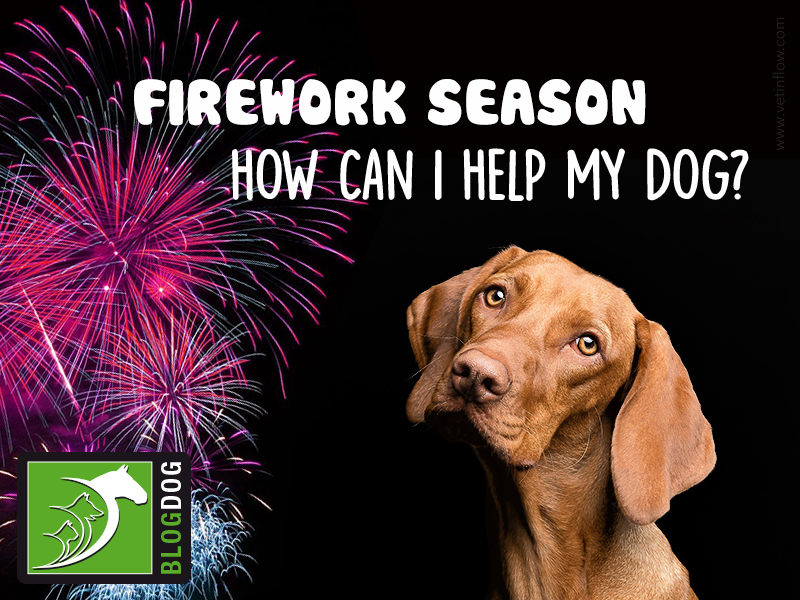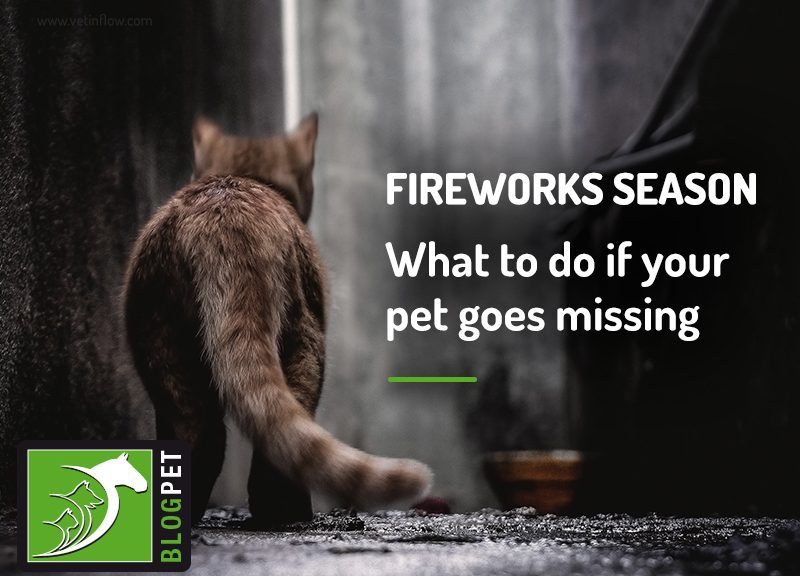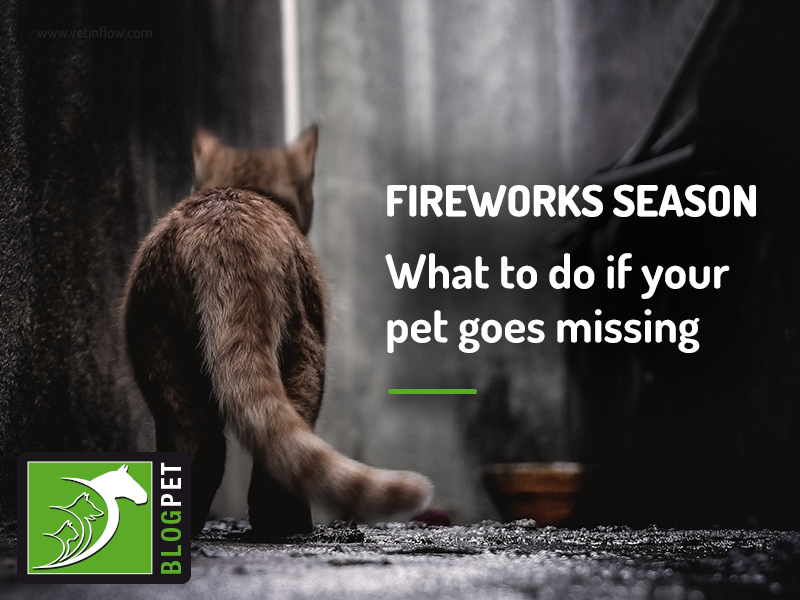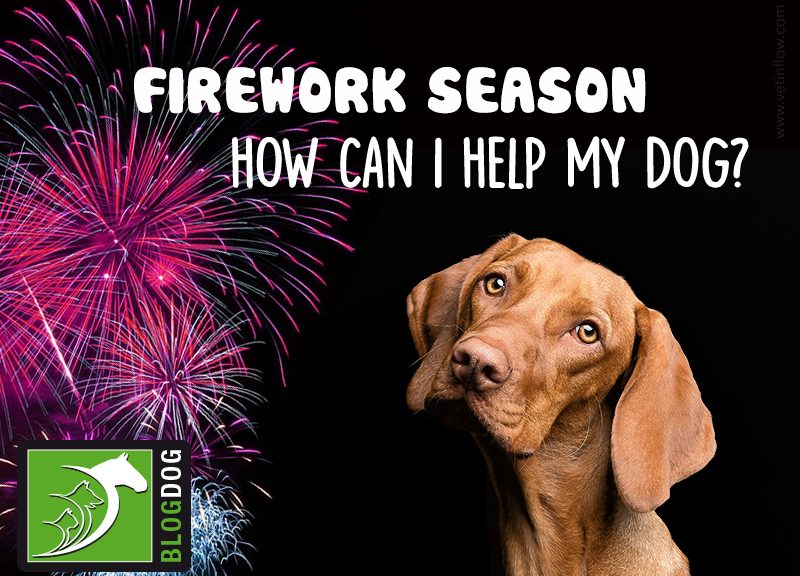
With the firework season fast approaching we’re getting excited about the festivities; however, many dogs are terrified of the zips, whizzes, bangs and other loud noises.
Noise phobia can manifest in different ways, and the signs usually progress over time unless action is taken. But how can you tell if your dog is stressed? As an owner and everyday companion, you’ll probably know even if you can’t explain precisely why.
For some dogs, it’s very easy to notice when they’re stressed as you’ll see them drooling, trembling, putting their tail between their legs, vocalising, pacing around, trying to hide, acting destructively (digging, chewing, breaking things) or attempting to escape. Other dogs show more subtle signs of stress such as panting and yawning that can sometimes be missed.
Even though they may be doing things that they shouldn’t like pawing at the doors or evacuating indoors, you should never reprimand your dogs for displaying fear, as this will cause them even more distress and have adverse long-term consequences.
With that in mind, we prepared this post with some tips to help you prepare for the upcoming days so you can try to minimise your dogs’ stress.
BEFORE THE EVENT
– Talk to your vet
There are medications and pheromone diffusers available that may help instil a feeling of calm for your dog. Your vet will be able to indicate what’s best suited to your dog’s case.
– Create a safe area for your dog
This should not be done on the day of the event. You can prepare a space for your dog in advance and let him or her get to know it before anything happens so that it feels familiar and safe when the fireworks start to pop. This can be in a separate, quiet room, or can just be a bed/crate, a place where you know your dog feels secure. Add some toys, a favourite blanket or even some of your clothes to reinforce this feeling and make it even cosier.
– Walk your dog earlier
Fireworks are usually let off in the evening or at night so make sure you’ve walked your dog earlier to avoid being outside when they start.
Also, a tired dog is a more relaxed dog, so make sure you allow lots of play time to get the desired effect!
Keep your dog on a lead while you’re walking and make sure the identification tag and microchip information are up to date in case he or she gets spooked and runs off.
– Bring your dog indoors before fireworks are let off
This will prevent your dog from escaping in fear and inadvertently getting lost.
The sounds produced by the fireworks will also be less audible inside. To further muffle the sounds or distract your dog from them, you can switch the tv/radio on. Closing the curtains can also block the flashing lights going on outside.
– Did someone say treats?
If your dog is food-motivated, having some treats to hand out before all the noise starts might be a good way to distract and keep your pet entertained throughout all of the commotion. Chews, activity feeders and toys stuffed with food make excellent, long-lasting treat options.
THROUGH THE EVENT
You should stay calm and act normally as dogs react strongly to our emotions and behaviours. If you are behaving differently, your dog will assume things are quite bad!
If your dog is relaxed, give lots of praise for calm behaviour. Petting and cuddling can be an option if you feel it might help your dog settle, but if he or she would rather hide in the safe area you prepared or under your bed, then let your dog do this instead and try to keep disturbances to a minimum.
It is very important that your dog has choices available during times of stress or fear as most dogs will naturally find their own safe place.
WELL IN ADVANCE
We’ve covered some short-term options for you to help your dog through the fireworks; however, prevention is always the best approach.
If you have a puppy, teach him or her to accept a wide range of noises from an early age. Just like socialisation, this will help your puppy grow into a balanced, happy, confident dog.
As for adult dogs, you can also train them to accept different noises, it will just take a bit more time and patience as they may already have fearful experiences associated with them. This type of training is known as desensitisation and counter-conditioning and should be done with the assistance of your vet or a qualified behaviourist. Just keep in mind that this is going to be a gradual process, so you should seek help at least 3 to 6 months in advance.
We hope you find this helpful and wish that you have a great time during the firework season!
<a href=”https://www.thepetprofessionals.co.uk/courses/canine-courses.php”>Would you like to know more about dogs? Check our Canine Courses:
<div class=”col-xs-6 col-sm-2 col-md-2 paddingLeft0 “>
<img style=”max-width: 100px;” src=”https://www.thepetprofessionals.co.uk/images/courses-icons-canine.jpg” width=”100%” />
</div>
<div class=”col-xs-6 col-sm-10 col-md-10 paddingLeft0 “>
<h2>Canine courses</h2>
</div>
</a>



